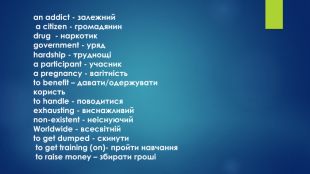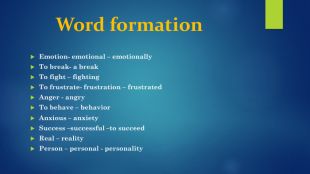Презентація "Youth in Mind"
Про матеріал
матеріали презентації містять лексичний мінімум та завдання для дискусії Being a good citizen під час вивчення теми Youth on mind в 11 класі Перегляд файлу
Зміст слайдів
pptx
До підручника
Англійська мова (10-й рік навчання, рівень стандарту) 11 клас (Карпюк О.Д.)
Оцінка розробки


Безкоштовний сертифікат
про публікацію авторської розробки
про публікацію авторської розробки
Щоб отримати, додайте розробку
Додати розробку




















